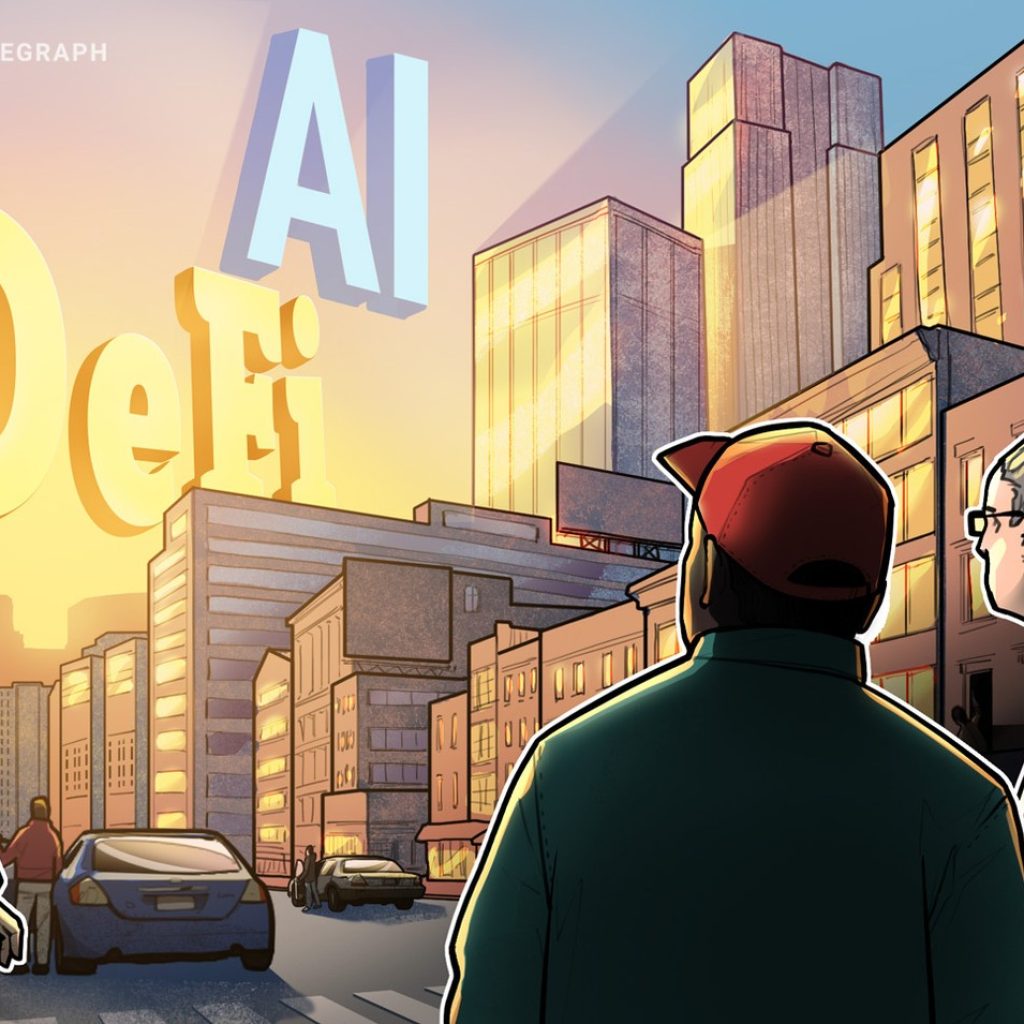
NFT artist Nikita Replyanski on the future of NFTs, his work with the Longevity Science Foundation, and art as community building.
Just as Art Basel has expanded beyond its initial gallery showcases in Switzerland, where the international art fair was conceived, the pursuit of longer and more fulfilling lives has grown from the subject of science fiction novels to real, viable science.
Now the evolution of art is being leveraged as the Longevity Science Foundation’s partnership with Triptych and digital artist Nikita Replyanski leveled up during Art Basel in Miami Beach. The partnership to launch a collection of nonfungible tokens (NFTs) was announced during the summer. The “Longevity Volumes” will help fund LSF research grants for longevity projects.
Replyanski said he showed his own work and his collaborations, including the one with the LSF, at Beyond Basel, a star-studded, cutting-edge NFT event curated by Trippy Labs.
“All my art is inspired by the transformation of humanity by technology,” he said. “The field of longevity touches all layers of human reality like no other; from the physical to the social, it is very inspiring.”
Replyanski hopes that his work with the LSF will help change attitudes about basic and experimental science. “I like to think that through projects like this, I am participating in shaping the image of medicine and science of the future,” Replyanski said.
His work has been connected to the intersection of technology and humanism for nearly a decade when he was involved in designing bionic/robotic hands with Motorica. Replyanski collaborated with engineers to develop several design lines used by people with disabilities today. Models with his art prosthetics participate in fashion shows and photoshoots designed to transform how the world perceives prosthetics and disabilities.

One of Replyanski’s bionic prosthetics designs
“I am very passionate about the values of transhumanism, among which, of course, biology and medicine play a huge role,” he said. “It's an amazing experience to study the human body, to combine the living and the artificial, to see how the results of your work can change lives.”
NFTs in the Art World
Events evolve. Science evolves. Art evolves, and NFTs are playing an important role in redefining the evolution of media. Events like Art Basel are an opportunity to expose what may be an uninitiated audience to the potential that exists for this medium.
“The role of such events for the NFT community and digital art, in general, is enormous,” Replyanski said. “First of all, it's the development of digital art as a genre, opening it up to the audience of traditional art, representing brands and galleries. Of course, it is expanding the boundaries of the NFT community. I am sure a lot of people will change their attitude toward NFTs thanks to such events.”
He said having the opportunity to engage with an audience in person, versus across a more contained medium like his Instagram feed, allowed for a greater experience and a more authentic expression of the artistic statements he’s trying to convey.
“Context is very important to any artwork,” Replyanski said. “Immersing yourself in it through huge screens is not comparable to scrolling through an Instagram feed where people often see my pieces. It's another level of communication with my art. The viewer can literally immerse themselves in my world.”
This is extremely important for artists, especially given the state of the financial markets as investors look for alternatives. “Thanks to the bear market, there are still those people for whom NFTs are not the way to make fast money, but a full-fledged platform for self-realization of a creator's art or a niche for web3 project development,” he said. “I am one of those who have invested time and money in building my own little universe within the NFT community. I have a lot of releases coming up in the near future.”

Flora, one of Nikita’s earlier NFT art pieces. View more of his work here.
NFTs for Nonprofits
Replyanski said he is particularly excited about the potential NFTs hold for nonprofit organizations like the Longevity Science Foundation.
“NFT drops for nonprofit organizations is a new tool of participation for those who want to support them,” he said. “In addition to the already established system of buying certain products in the form of a donation, NFTs can have all sorts of features built-in. This is an open gateway for anyone who wants to become a participant in the life of a Web3 charitable company. Simplicity, accessibility, gamification, or the ability to vote in DAO. These are new additional opportunities to build a community with such funds. For the artist, it's an opportunity to show their vision and involvement in the theme.”

Sagacity, by Nikita Replyanski.
Proceeds from this NFT, his most recent digital art, will support the Longevity Science Foundation.
The Longevity Science Foundation is a global nonprofit dedicated to expanding the human lifespan. Most recently, the LSF further developed its presence in the US with a new headquarters in Miami and appointed president and CEO, Lisa Ireland. NFTs will play a valuable role in advancing the LSF’s work funding cutting-edge longevity research. Nikita’s “Longevity Volumes” collection explores the relationship between humans and technology, and the proceeds will go directly toward supporting the LSF.





